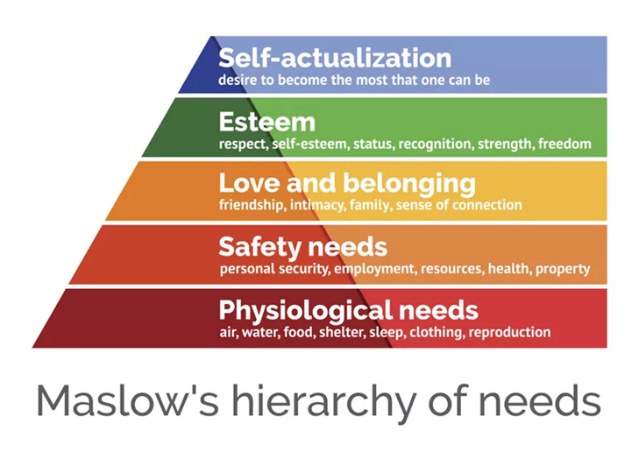Will, power, driving force, desire, interest, encouragement… All these words can be summed up in one: MOTIVATION. Motivation is the key to our actions. It directs our behaviors and reactions and determines our performance, including perseverance and responsibility. By doing so, it marks our personality and with its power influences us to become what we are. In psychology, motivation is divided into external (extrinsic) and internal (intrinsic). It is important that the motives or desire for a certain activity come from us themselves. That’s when we talk about intrinsic or self-motivation.
It is a term used to describe the characteristics of an individual's behavior in various areas operation. It is the individual’s inner excitement that motivates him into a particular activity. It determines perseverance and enables focus in activities on the way to the desired goal or
to meet a particular need. Self-motivation is an individual's voluntary, internal striving for the best job (task, action, goal achievement,…) possible.
There are quite a few obstacles and problems, we have already mentioned lack of motivation, but what is our motivation related to? Motivation is related to the following elements:
- Needs
- Goals
- Wishes
According to Maslow, people have a hierarchy of needs, which extends from lower needs for survival and security, to higher needs for self-realization or. self-actualization. Satisfaction of lower needs is a condition for them to appear higher, for a person to realize his personal potential, activate his natural gifts and use them. It thus satisfies the need for self-realization, which is the culmination of motivation, desire.

MOTIVATIONAL MEANS
There are several means of motivation:
We have greater motivation in areas where we are good or where we have some ability or talent. When does our motivation decline? When there are no expected results.
Definitely the best motivation is to be praised, encouraged and supported. That is when we get even more will and momentum to move forward. If we work hard, learn, work, etc., but there is no achievement, motivation declines. Then it is necessary to find obstacles and find out where the problems come from. It is necessary to gather a lot of strength for inner motivation to walk forward and not give up despite failures and disappointments.
Positive criticism is well-intentioned criticism, with good arguments and is justified. He refuses to harm a man, even if he tells him real facts that can be painful.
Criticism can also be negative. This is when criticism has only one purpose - to harm a person, whether real or not, justified or not. Unfounded criticism is criticism that has no real basis and no real arguments (because I thought so, I said so, etc.).
When is criticism justified?
1. when it is well-intentioned, realistic and positive
2. when it is well-argued (it has enough evidence that it is true)
3. when it follows the general good
4. when it is action-oriented and not personality-particularly
The latter plays an important role. When, for example, a person criticizes another one, he should not direct the criticism at him as a person, but only at his action.
Strong motivational means also include motivators themselves. These are people who in any way in different areas want to encourage others, and infuse them with the will and strength to act in life. For a motivator to be good, there has to be authority. Being an authority, however, means that this person has quite a few strong qualities (consistency, kindness, professionalism, empathy, value system, etc.).
Self-motivation ensures forward progress with the projects and activities. It is the ability to take initiative and finish tasks should be completed. Self-motivation as positive motivation, help you to focus on outcomes that results from accomplishing a task or achieving a certain goal. While self-motivation has a strong link with setting goals. Motivation is useful for many situations in life and can vary as we face challenges, dealing with unexpecting situations and care for our emotional and physical health or well-being. It is normal to experience shifts in motivation levels while moving through life.
During a turbulent time like a pandemic, it's easy to feel like we are at the bottom of a pit, lost, and helpless. The daily barrage of news regarding the pandemic can lead to mental fatigue and emotional exhaustion.
Often, people facing crisis situations need more empowerment, either from their internal resources and will, or from an external source from which they can draw internal strength to cope with the crisis and make the necessary adjustments or changes. Strengthening self-motivation is of great importance for maintaining good mental health.
In difficult crisis situations can happen that a person begins to develop a certain distorted image of reality, which, if they last too long or emotionally too strong, can develop into disorders. Such personality disorders have four defining features which include distorted thinking patterns, problematic emotional responses, over- or under-regulated impulse control, and interpersonal difficulties. Therefore, it is important that both volunteers and helpers know the power of motivation and self-motivation to strengthen personal mental health.